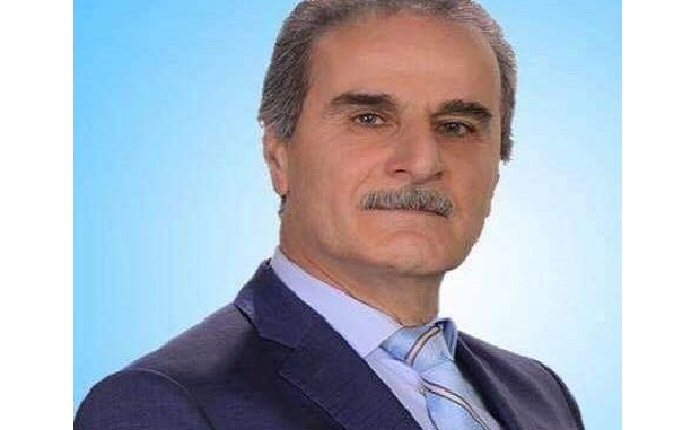A momentous awakening of Chaldean-Syriac-Assyrian conscience under the roof of Erbil Parliament!!
The views expressed in this op-ed are solely those of the author and do not necessarily represent those of SyriacPress.
By Oshana Nissan writer and political analyst
For the first time in the history of legislative authority in Iraq in general and in the Kurdistan Region in Iraq in particular, the Prime Minister of the Iraqi Kurdistan government was questioned under the roof of the legislative assembly for a period of 10 consecutive hours. This happened on Tuesday morning, October 5, when all Members of Parliament had the opportunity to put questions to the government. Masrour Barzani, head of the government that can be called the “savior” government, did not hesitate to accept the invitation of the Presidium of Parliament. The Presidium had invited the Prime Minister to explain government policies, projects and priorities and answer lawmaker’s questions on how to overcome the current difficult phase and the great risks facing citizens of the Region, the continuing impact of repercussions of the ISIS-period from 2014 onward, and the deepening crisis between the Kurdistan Regional Government and the Federal Government in Baghdad – coinciding with the outbreak of the Corona epidemic in the world.
Barzani showed no reluctance to publicly shed more light on the background of the Baghdad-Erbil crisis and the role this crisis plays in further complicating the economic situation and negatively affecting the psychological atmosphere in the Kurdistan Region in Iraq – i.e. insofar as the Prime Minister was able to highlight and put his fingers on strengths and weaknesses of the already fragile economic situation.
As for the momentous awakening of conscience of our Chaldean-Syriac-Assyrian people under the roof of the Parliament in Erbil, our five Chaldean-Syriac-Assyrian MPs succeeded in recording an honorable historical achievement, one which history will always remember. And history only remembers distinguished people, like our Chaldean-Syriac-Assyrian MPs in the Kurdistan Regional Parliament, during this difficult phase. The five MPs managed to make good for 28 years of mistakes in the existence of the KRI’s parliamentary process after our MPs raised the issues of our Chaldean-Syriac-Assyrian national-patriotic agenda, and they did not utter one single paragraph about the interests of the two Kurdish parliamentarian majority parties – as was always the case in the past – but only raised issues and concerns related to our Chaldean-Syriac-Assyrian nation.
In fact, Mr. Barzani’s success in creating a conducive normative and procedural climate in order to correct and eliminate the phenomenon of corruption by developing the region’s economy from a rentier economy into a multi-resource economy, urged head of the National Union Alliance bloc in the Erbil Parliament Romeo Hakkari to complain: “Concerning the issue of transgressions in the Kurdistan Region in Iraq, it must be emphasized, that violations in the Chaldean-Syriac-Assyrian villages and countryside are still continuing in one way or another. I noticed during my recent visit to the Nahla district of Aqra, Dohuk governorate, that there is a double standard in the delivery of public services to all citizens of the region. For example, the paved road and transportation network that was build, did connect the last Kurdish village in the Nahla region but failed to connect, via paved roads, to the Chaldean-Syriac-Assyrian villages – a distance not exceeding 15-17 km. This is a continuation of policy of failing to deliver public services to the areas belonging to our Chaldo-Assyrian people.”
MP Fareed Yaqoob, head of the Rafidain bloc, called for the: “Inclusion of the file of violations against property and lands of our people in the reform program of this cabinet, so that the file will be finally dealt with and thereafter can be closed.” The deputy also emphasized the necessity of reviewing the school curricula adopted in the Region because they are not consistent with the idea of coexistence in the Region. On the contrary, it contains subjects that “contradict the spirit of brotherly coexistence,” said Mr. Fareed Yaqoob.
In her turn, MP for the Chaldean-Syriac-Assyrian Popular Council Klara Odisho Yaqub, managed to confirm the requests of her fellow deputies, saying: “Regarding the need to expedite the implementation of Law No. (5), the Law on the Protection of the Rights of the Components in the Kurdistan Region of 2015, Paragraph (5), which concerns the treatment of abuses against the territories of the components, my question is, when will the file of violations be included in the program of the KRG to find a final and just solution to the file of violations against lands and property of our people in the Region?”
From the above we can conclude one clear fact and this is for the first time in the 28th anniversary of the parliament in Erbil; that our Chaldean-Syriac-Assyrian deputies, for the first time, were keen on the need to unify their visions and attitudes towards the accumulated historical transgressions against the villages and properties of our people in the Kurdistan Region in Iraq. This unified vision will achieve astonishing results in the near future. And this unity will succeed in bringing down the invisible hands that are foul playing in hiding with the aim of deepening sectarian and communal divisions among our Chaldean-Syriac-Assyrian people, and thus spreading and consolidating concepts and visions of exclusion among the sons and daughters of one people. Through my reading of the dimensions of these positive results, it seems to me that the time has come to submit a request to the Independent High Electoral Commission in Iraq to stop, in the name of justice and democracy, the practice of confiscating the will of the Chaldean-Syriac-Assyrian voter, i.e. by allocating a special day or specific hours for the voters of our Christian people in the Kurdistan Region and in Iraq as a whole to vote on election days.
Oshana Nissan is a writer and political analyst and lives in Ankawa, Iraq
Disclaimer: translated from the original Arabic. Here



















